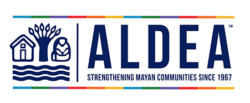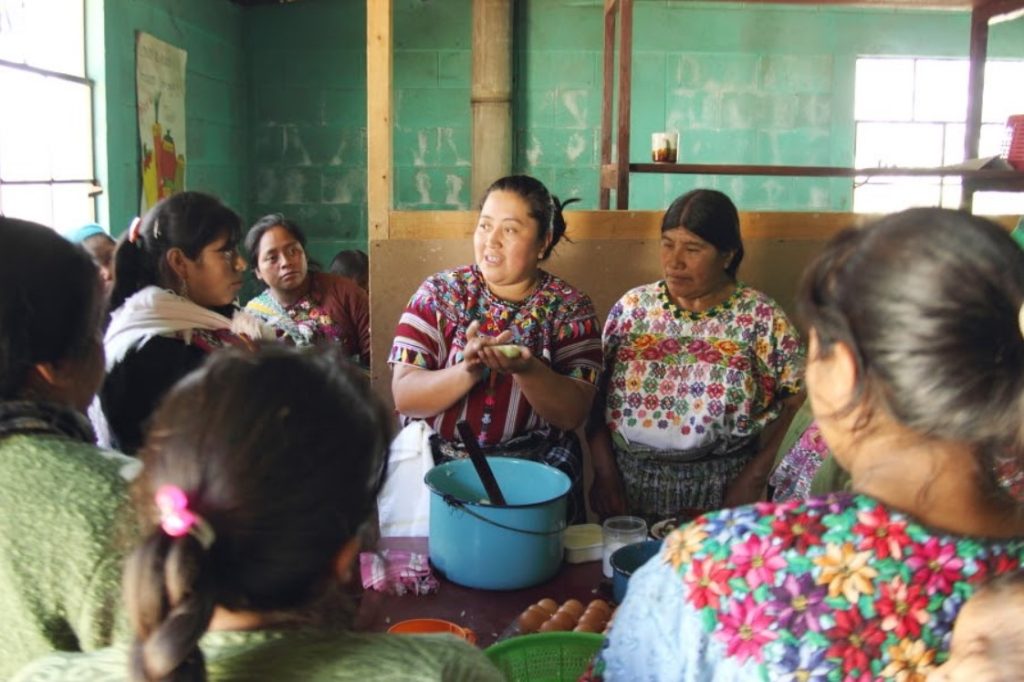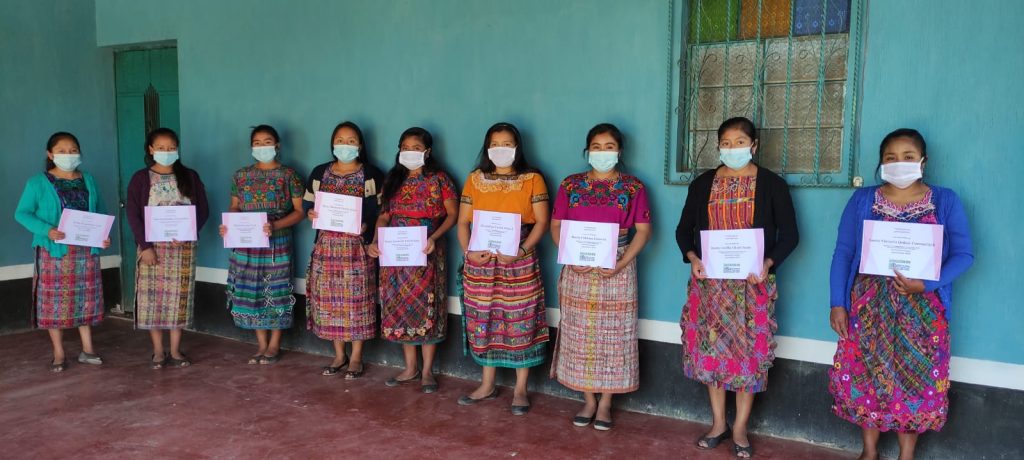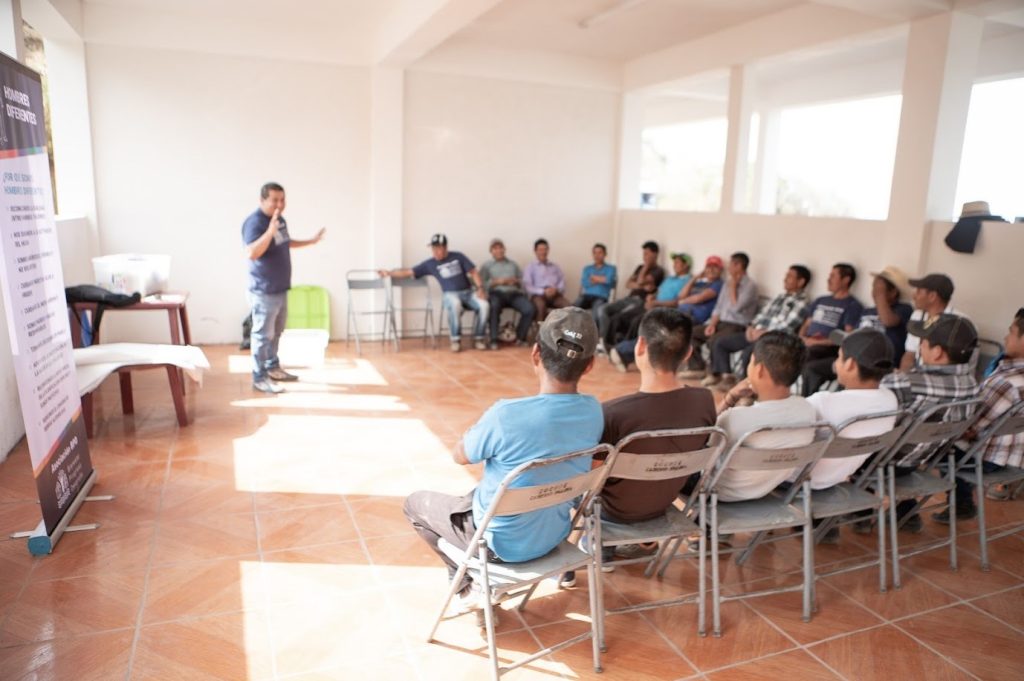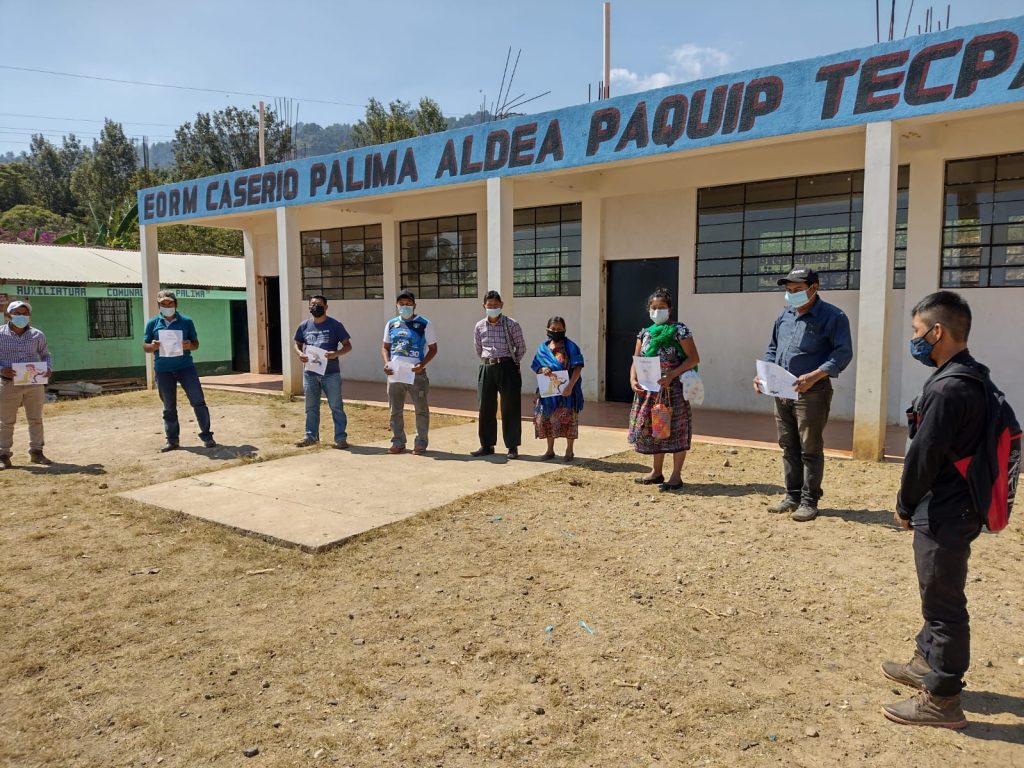Development work is a challenge regardless of where you are or who you are working with. Any successful intervention is rooted in a deep understanding of the context in which it takes place and a willingness to adapt methodologies to fit the circumstances of the population you are working with. There is no one cut-and-dry, tried-and-true technique that can be applied across the board in any location with any population that will be successful. Unfortunately, this is where many organizations fall short, designing rigid programs, implemented uniformly across a diverse range of populations and locations, with monitoring and evaluation efforts focused on program outcomes and not considering the ongoing evaluation and adaptation of program design. One of the reasons that ALDEA chooses to fund and champion the work of our partner organization in Guatemala, ABPD, is that both organizations understand the value of local knowledge and experience, desire to meet our partners where they are at, respect and celebrate differences, and share the value of reflexivity in all that we do.
ABPD’s staff consists of highly competent and experienced individuals that are from the very areas where the organization’s programs are realized. This gives us valuable insight into the context of where we work, informing the design of interventions to address challenges specific to the region and populations they target. Hiring staff locally rather than relying on professionals from other parts of the country or other countries entirely adds a layer of familiarity and understanding between staff and program participants that cultivates trust between all parties. ABPD programs are carried out in the Cakchiquel language, which on the surface provides a means to increase the comprehension and diffusion of knowledge and skills learned through participation in programs and on a deeper level demonstrates the organizations respect for and value of partner communities’ traditions, values, customs, and culture. We stress the openness of the organization to input from program participants and encourage feedback and mutual learning.
One of the most important aspects of both ALDEA and ABPD’s work is our willingness to hear new ideas, to try new approaches, to learn from both successes and failures, and to continually adapt our methodologies to effectively address the needs of our partners. This value is illustrated in ALDEA’s commitment to designing 5-year strategic plans that guide our work and allows for the evaluation of efficacy and revision of the plan if necessary. The value of reflexivity can also be found throughout ABPD’s programs. For example, part of ABPD’s health and sanitation infrastructure program is supporting families in their construction of pit latrines. The design used is one that is promoted by Guatemala’s Ministry of Health and meets their standards for adequate hygiene and sanitation. Several families in an existing partner community have volunteered to participate in a pilot project where they will receive and manage composting toilets. The toilets will be monitored for a 12-month period to determine their effectiveness and efficiency, measure interest in the community and openness to the design and evaluate how realistic the implementation of composting toilets on a larger scale could be. Based on the findings, community input, and available funds, a determination will be made as to whether this design will be adopted on a larger scale. Regardless of the outcome, knowledge will be gained that can be shared with our partners and other organizations to inform decision-making. A key insight that ABPD has gained over years of implementing a diverse agriculture and food security program is that site-specific designs are more successful than cookie-cutter projects that are implemented identically without consideration of local contexts. For example, supporting the planting and maintenance of family gardens and providing dairy goats to supplement families’ nutrition are both pillars of ABPD’s agriculture program, but experience and community input has shown that these are not always feasible options for many participating families due to access to land, soil quality, time constraints, and other limiting factors. Rather than obligating program participants to all follow the same path, regardless of its viability for some, ABPD has chosen to do what it does best: listen to communities and support them in guiding the development process. This gives communities the power to choose what works best for them from the options that ABPD has to offer, resulting in better outcomes for program participants.
The end goal in all development work is empowered communities with the tools necessary to address the challenges they face head-on, grow, and thrive. If communities are fed solutions, obliged to follow a certain path, or otherwise passively engaged then true resiliency and empowerment are not likely developed. A crucial strength of the work that ALDEA and ABPD do is that our partners are in the driver’s seat, leading their own growth, determining their own futures, so that when our focus inevitably shifts to new communities, they will be able to tackle any challenge that presents itself and continue to flourish on their own. The values of reflexive, community-driven change guide our work, are the cornerstone of our success, and push us towards a brighter future.
